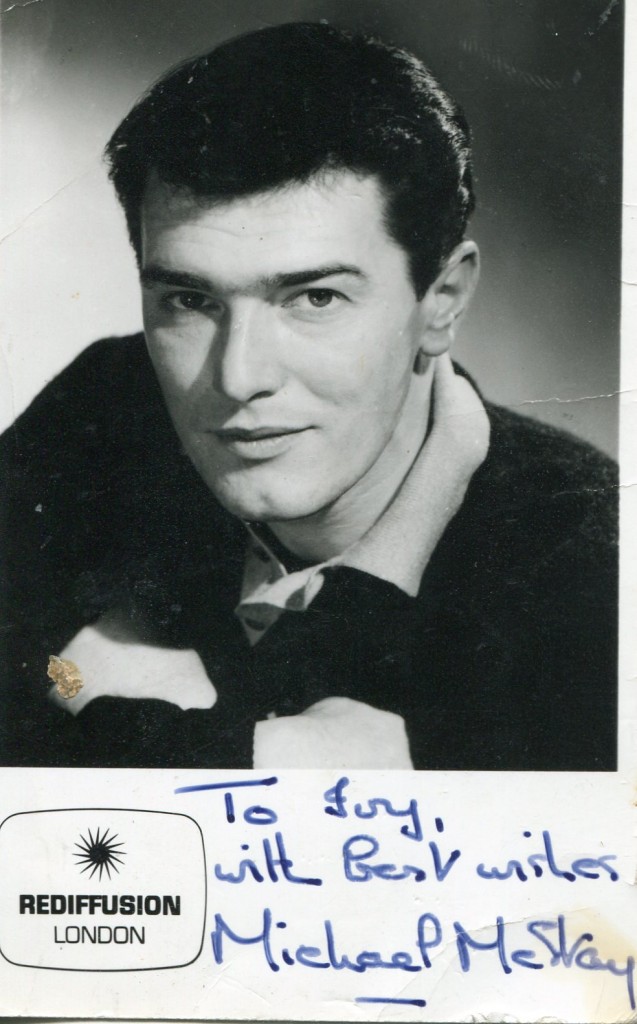
Michael McStay was born in 1933 in Essex, England. He is an actor and writer, known for No Hiding Place (1959), Le mari de l’ambassadeur (1990) and Jack & Sarah (1995).

Brittish Actors

Michael McStay was born in 1933 in Essex, England. He is an actor and writer, known for No Hiding Place (1959), Le mari de l’ambassadeur (1990) and Jack & Sarah (1995).
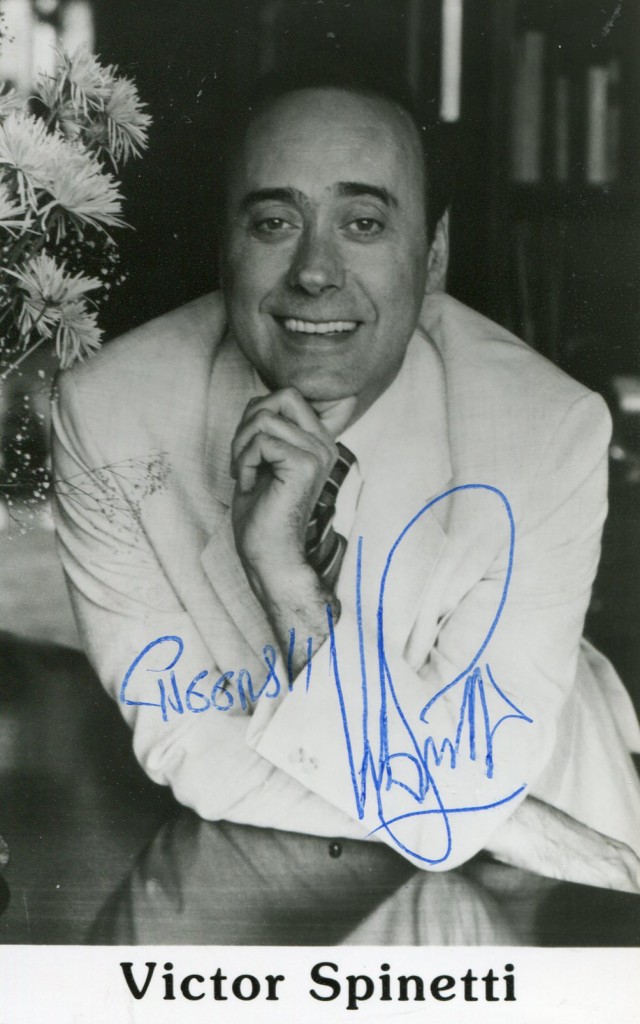
His 2012 “Guardian” obituary by Michael Coveney:
Victor Spinetti, who has died of cancer aged 82, was an outrageously talented Welsh actor and raconteur who made his name with Joan Littlewood’s Theatre Workshop and found fame and fortune as a friend and colleague of the Beatles, appearing in three of their five films, and with Richard Burton and Elizabeth Taylor in Franco Zeffirelli’s The Taming of the Shrew (1967).
It was while he was giving his brilliantly articulated and hilarious “turn” as the gobbledegook-shouting drill sergeant in Oh, What a Lovely War! in the West End in 1963 – he won a Tony for the performance when the show went to Broadway – that the Beatles visited him backstage and invited him to appear in A Hard Day’s Night (1964).
George Harrison later said that his mother would refuse to go and see the group’s films unless Spinetti was in them. These, and other tales of the stars, would be recounted by Spinetti himself in his one-man shows, and in the wonderful autobiography he wrote, Up Front (2006), with the help of another Littlewood associate, Peter Rankin.
“The people I miss most are all in the show,” Spinetti told me over lunch four years ago, “so I don’t miss them at all, really. It’s like a seance, and there they all are, Noël and Marlene, Frank, Joan and Tennessee. Tenn came to see me in a play that was a disaster. ‘Victor,’ he said, ‘I’ll see you in anything. But don’t be in this again.'”
Spinetti was the eldest of six children, born in the mining village of Cwm in the Ebbw Vale. His father, Giuseppe, who ran a fish and chip shop, was interned on the Isle of Man when the second world war broke out. Spinetti was educated at Monmouth school, then became embroiled in amateur dramatics and was discharged from his national service, and a TB ward, in 1948 with a pleural effusion. He then attended the Cardiff School of Music and Drama where he met his partner, the actor Graham Curnow (who died in 1997). They shared a house, and an openly non-monogamous life, thereafter.
Spinetti’s grounding in show business was both louche and demanding: a Welsh concert party, revues, variety theatres, US air force bases and hotel functions. He made his London debut in Expresso Bongo (1958) by Wolf Mankowitz and Julian More at the Saville theatre. Paul Scofield was the star in this satire on the entertainment industry, but a multitasking Spinetti made a comic mark as a Fleet Street editor, a parson, a psychiatrist and a head waiter.
He was more than ready for the swinging 60s, living a champagne lifestyle and dressing colourfully, even when he could not pay all the bills. And if that happened, he told me, he “spanked old gentlemen for money” so he could buy Christmas presents. “My dear old mother told me that, if she’d known at the time, she would have come along and given me a hand!”
Littlewood snapped him up at Stratford East, where his association, in a great company including Barbara Windsor, Harry H Corbett, Avis Bunnage, George A Cooper and Murray Melvin, stretched from 1959 to 1965. This was a golden age in British theatre, running in parallel with first stirrings at the Royal Shakespeare Company and the National theatre.
He appeared as Brain-Worm in Ben Jonson’s Every Man in His Humour, as an IRA officer in Brendan Behan’s The Hostage (which he also played in New York), and as Tosh in Frank Norman and Lionel Bart’s Fings Ain’t Wot They Used T’Be with Windsor before Lovely War took him back into the West End.
After his New York success and the first two Beatles films – Richard Lester’s Help! followed A Hard Day’s Night in 1965 – he played opposite Jack Klugman in Neil Simon’s The Odd Couple at the Queen’s in 1966 and then accepted an invitation from the critic Kenneth Tynan to co-write and direct John Lennon’s zany, poetic In His Own Write at the National (then based at the Old Vic) in 1968.
His career after this phenomenal start was erratic. He clocked up more than 30 films, including the third Beatles collaboration, Magical Mystery Tour (1967) for television, and Andrew Sinclair’s Under Milk Wood (1972) with the Burtons again, as well as Peter O’Toole, Siân Phillips and Vivien Merchant.
Spinetti was always in work but there was not much focus to it. He started directing musicals in the 1970s, taking charge of Hair in Amsterdam and Rome, and Jesus Christ Superstar in Paris. In 1980 he directed The Biograph Girl, a mediocre musical about the silent movie era at the Phoenix theatre, London, and shortly afterwards launched his one-man show of tart and funny reminiscences, A Very Private Diary, at the Edinburgh festival, but only on the fringe.
A season with the RSC at Stratford-upon-Avon in 1995 was not a happy experience (“we were called by page numbers and I didn’t know the names of the people I was on stage with”) but he delivered superb performances as Lord Foppington in John Vanbrugh’s The Relapse and as a composite of cardinals opposite David Troughton’s four-square Richard III.
Later film work included a nice cameo in Peter Medak’s The Krays (1990). On television he played in an early sitcom opposite Sid James, Two in Clover, but became even better known as a Mexican snack thief in adverts for McVitie’s Jaffa cakes. In the 1980s he was the voice of Texas Pete in the children’s series SuperTed, and 10 years ago played the “man of a thousand faces” in the popular children’s show Harry and the Wrinklies.
His last on-screen appearance was in a recent DVD of an independent film, Seth Swirsky’s Beatles Stories, issued to celebrate the 50th anniversary of the Beatles’ first recording session at Abbey Road. And on stage he last garnered acclaim as Einstein in Albert’s Boy at the Finborough theatre in Earl’s Court in 2005. There he was, taking an audience by surprise right to the end.
• Vittorio (Victor) Giorgio Andrea Spinetti, actor, born 2 September 1929; died 18 June 2012
• This article was amended on 22 June 2012. The original described Expresso Bongo as a satire on the newspaper industry.
The above “Guardian” obituary can also be accessed online here.
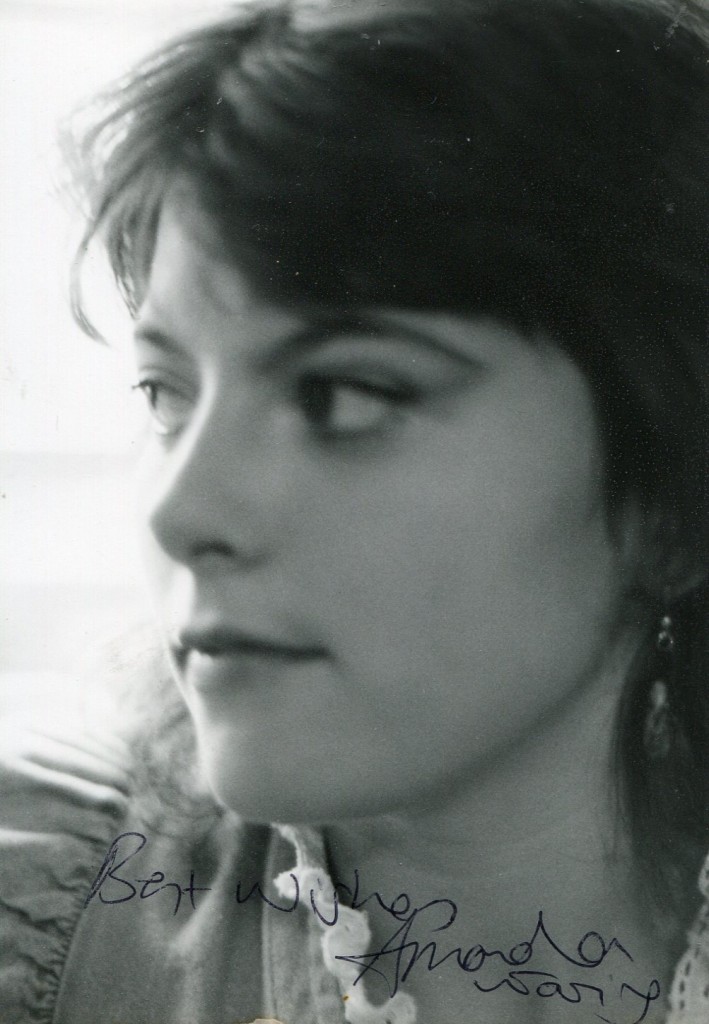
Amanda Waring was born in 1966 in England. She is an actress, known for Eat Yourself Slim (2005), Tucker’s Luck (1983) and No Strings (1989). She is the daughter of the late Dame Dorothy Tutin and Derek Waring.
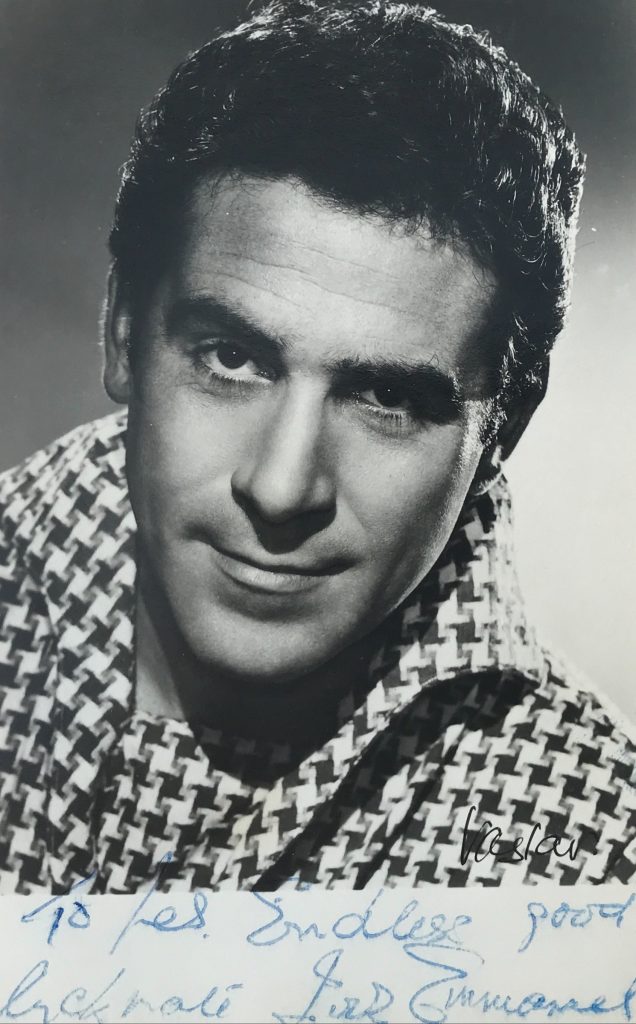
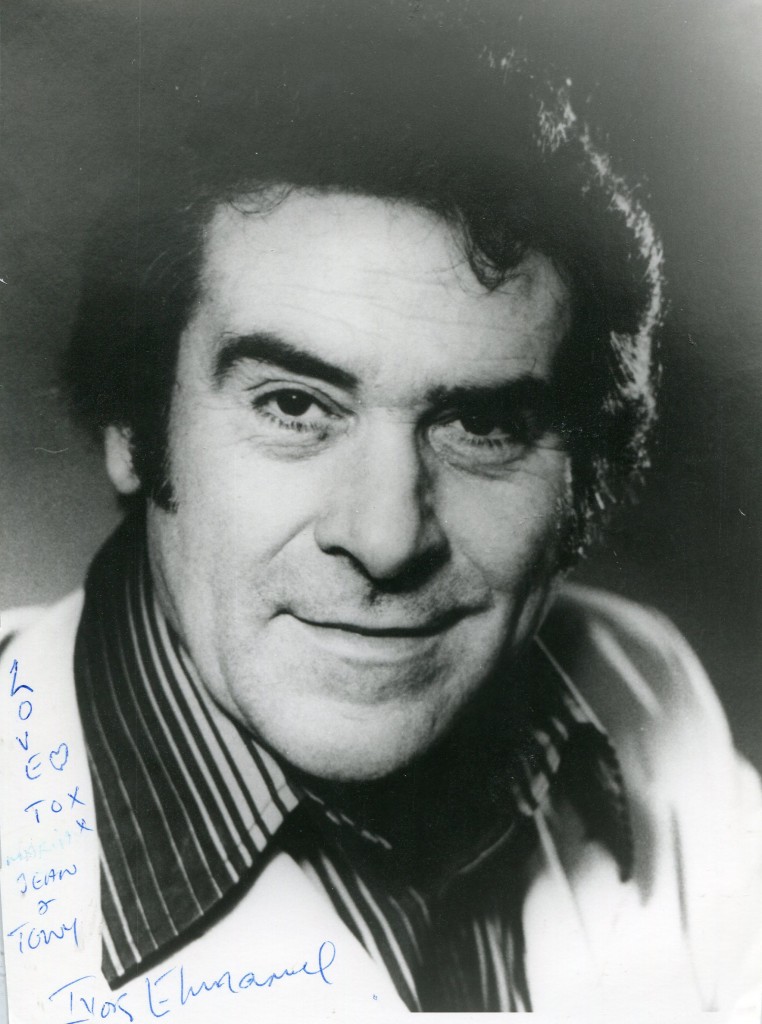
Patrick Hannan’s obituary in “The Independent” in 2007:
Even today, long after he made an early departure from showbusiness to spend the last 25 years of his life in Spain, people still nod with recognition at the name of Ivor Emmanuel, who has died aged 79. Of course, they say, he was the guy in Zulu. More specifically, he was Private Owen in that 1964 film, leading a small band of British soldiers in the defiant singing of Men of Harlech in response to the war chants of 4,000 Zulus preparing to slaughter them.
Zulu was the story of the siege, in the Anglo-Zulu war of 1879, of Rorke’s Drift, when 150 British soldiers defended a supply station against the Zulus, winning 11 Victoria crosses in the process.
Starring and produced by another Welsh actor, Stanley Baker, it was given a more intensely Welsh flavour than history justified, but in its turn that provided the occasion for Emmanuel’s unforgettable part in the swelling version, with specially written words referring to Zulu spears, of the familiar and rousing (and anti-English) Welsh song, Men of Harlech. Whatever you think of the story, it remains an unforgettable movie moment. And it was to overshadow everything else Emmanuel did in his career as a singer and actor.
His own life might have made a decent drama, or perhaps a south Wales rags to riches novel. He was born in Margam and raised in the mining village of Pontrhydyfen, near Port Talbot, an area that forms part of a golden triangle for the acting trade. Richard Burton, a couple of years older, was born there; Anthony Hopkins, 10 years younger, was from Taibach, just down the road.
In the 1940s the future for a boy from a poor working class family was clear enough: a life in the pits or the steelworks. Emmanuel’s prospects were made even more dismal by the stray German bomb that killed his father, mother, sister and grandfather when he was 14.
Emmanuel, who was then brought up by his aunt Flossie, became a miner and then a steelworker, developing his singing with the Pontrhydyfen Operatic Society in a period when even a modest mining village might have substantial cultural ambitions. From time to time he would walk off into the countryside with his wind-up gramophone to listen to recordings of Caruso.
In 1950 he got into the chorus of the D’Oyly Carte Opera Company and then – advised by Burton, legend has it – he got a part in Oklahoma at the Theatre Royal, Drury Lane. He was ideal for roles in those US musicals – strong, good-looking with dark, wavy hair and a powerful baritone voice. He was to play in many of them, including South Pacific and the King and I, but he did not get leading roles and it turned out to be his Welshness that unexpectedly brought him national recognition.
In the 1950s, Sunday television was precluded from disturbing the Sabbath’s religious character. So the ITV network was happy with Gwlad y Gan (Land of Song) from TWW, the then franchise holder for Wales and the west of England. It ran until 1964, and Emmanuel figured as an older brother figure among the children’s choirs.
It brought him much more work, but perhaps he was too Welsh for his own good. He was a natural for a New York musical of How Green Was My Valley, but it ran for only 41 performances and that was the end of his Broadway career. He made records and continued in stage musicals and on TV without becoming firmly established at the top of the bill.
It is curious that Zulu, an account of an imperial adventure, remains a staple of TV repeats in an entirely different era. But it does so and has provided Emmanuel with his piece of screen immortality.
Married three times, he is survived by his wife Malinee and their daughter, and his son and daughter from his first marriage.
· Ivor Emmanuel, singer and actor, born November 7 1927; died July 20 2007
The above obituary from “The Guardian” can also be accessed here.
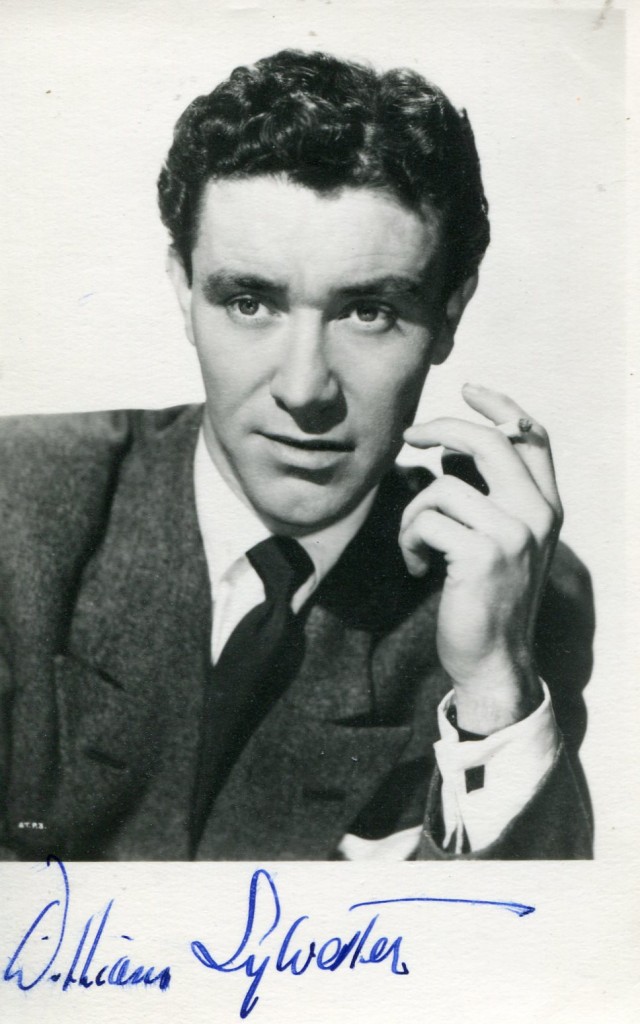
Richard Chatten’s obituary from 1995 in “The Independent”
Virile and good-humoured, William Sylvester was always good company in the films in which he starred, and he made more of the role of Dr Heywood Floyd in 2001: a Space Odyssey (1968) than was probably the intention of the film’s director, Stanley Kubrick. The cast was made up of actors rather than stars, and the spellbinding special effects of the film’s middle section aboard a space station orbiting the Earth created a sense of wonder in audiences that subverted Kubrick’s bleak conception of a world in which human beings had become an increasingly small and insignificant component. Investigating a mysterious monolith discovered on the moon, Dr Floyd later made the journey to Jupiter himself in Peter Hyams’s sequel 2010 (1984), in which Floyd was played by Roy Scheider: it was a much murkier film that could have done with Sylvester’s relaxed and reassuring presence.
Sylvester’s first appearance on the stage had been in his home town of Oakland in 1941, before joining the US Navy for the duration of the Second World War. In 1947 he settled in England to study at RADA, taking his first London bow in 1948 as the shadow in Winterset at the New Lindsey Theatre. His film dbut followed with a supporting role in Give Us This Day (1949), set amid Brooklyn’s Italian community, which he followed with J. Lee Thompson’s The Yellow Balloon (1952), a rare villainous part, but one in which he was well cast, calling for an actor engaging enough to take in the unsuspecting adults (one of whom was played by Veronica Hurst, who became his second wife), while able swiftly to turn on the menace with the boy hero, Andrew Ray. Sylvester also combined these qualities as Gordon Lonsdale in Ring of Spies (1964), a fictionalisation of the Portland spy case in which he was affability itself while luring Harry Houghton and Ethel Gee (Bernard Lee and Margaret Tyzack) into passing secrets to the Russians.
Sylvester played wisecracking Yanks with names like “Mac” and “Texas” in a couple of the ubiquitous war films of the Fifties, Appointment in London and Albert RN (both 1953) and a member of the Nova Scotian lobster- fishing community in High Tide At Noon (1957). On the radio he gave a fine interpretation of the title-role in The Great Gatsby, while on stage he played Captain Fisby for two years in The Teahouse of the August Moon, and made his first appearance in New York as Rudbeck in Mr Johnson in 1956. In 1961 he appeared in The Andersonville Trial at the Mermaid Theatre and as Adam Brant in Mourning Becomes Electra at the Old Vic.
By the early Sixties he was established as a rugged leading man in low- budget thrillers and horror movies, some of them quite good, such as Eugne Louri’s Gorgo (1960) and Lindsay Shonteff’s Devil Doll (1964), the latter a bizarre extrapolation from the ventriloquist’s dummy episode in the 1945 film Dead of Night. In 1968 Sylvester returned to the US, where his television appearances included a regular role in the mediocre series Gemini Man, starring Ben Murphy as a special agent who could become invisible. His film roles became regrettably scarce and inexplicably brief, consisting of a handful of fleeting appearances in such films as The Lawyer (1970), Busting (1974), The Hindenburg (1975, as a German officer), Warren Beatty’s Heaven Can Wait (1978) and First Family (1980).
The above “The Independent” obituary can also be accessed on,line here.
Barry Keegan was born on September 12, 1922 in Dublin, Ireland as John Barry Keegan. He was an actor and writer, known for Billy Budd (1962), King of Kings (1961) and Glencannon (1959). He died in September 1977 in London, England.
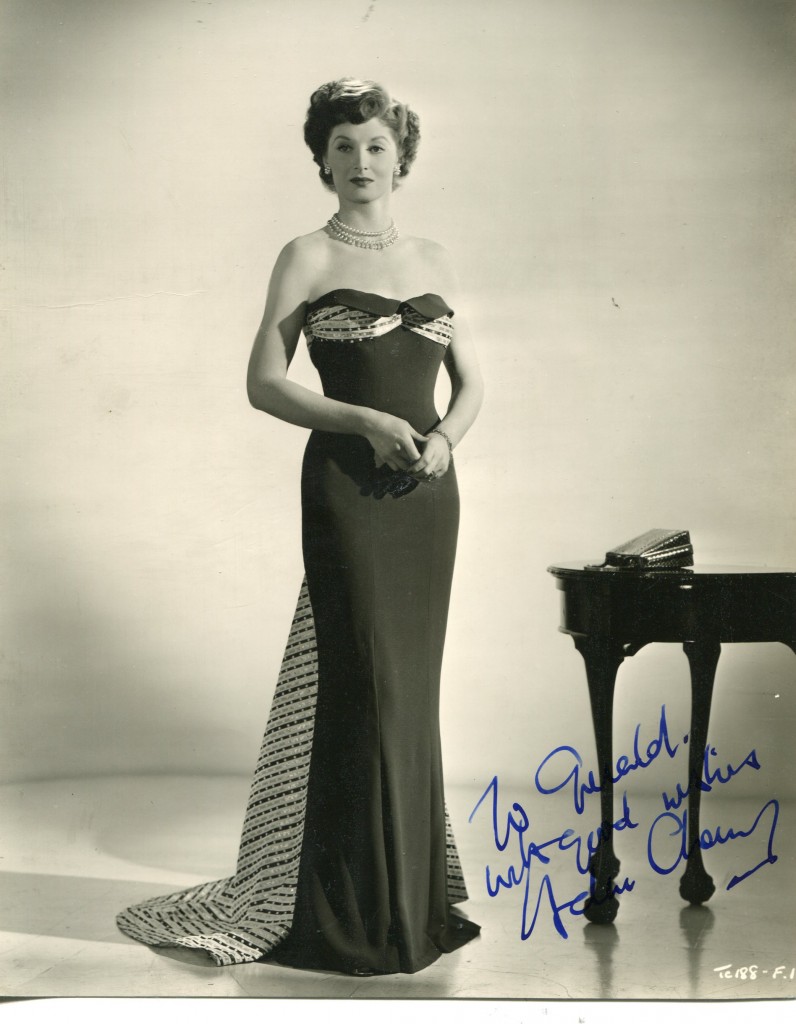
Eric Shorter’s obituary in “The Guardian” in 2001:
Helen Cherry, who has died aged 85, had an acting career that spanned nearly half a century on stage, screen and radio. She was staunchly classical by choice – as devoted to Shakespeare, Jonson, Farquhar and co as she was to her notoriously errant actor husband, the late Trevor Howard.
Cherry had a voice and an ear for verse, and spoke with intelligence and wit. Her Rosalind in As You Like It seemed unrivalled in the 1940s; and her cross-dressing Sylvia in The Recruiting Officer (1944) was enchanting. There was often something cool in her acting, yet she had an integrity that brought charm to her performances.
It was in one of Herbert Farjeon’s intimate revues, In Town Again, that she made her London debut in 1940 at the Criterion. She was to give ladylike, if hardly sublime, performances in a couple of dozen feature films, including Roy Baker’s Morning Departure (1950), when, married to doomed submariner John Mills, she cried: “I’m so sick of sharing you with a lot of damn submarines!”
There was television too, but none of it was, for Cherry, a patch on the theatre. She had entered it at a time when a serious-minded young woman could choose from several companies to act Shakespeare, when the regions were bristling with repertory companies.
She was born in Manchester and brought up in Harrogate. Intending to be a stage designer, she trained as a commercial artist, but the first job she put in for – and what became her professional debut – was in Manchester in 1938 as an extra in The Vagabond King. Repertory theatre followed, in Manchester, Chester and St Annes, and in 1940 a tour of a Farjeon revue, Nine Sharp, followed by In Town Again.
In 1942 she joined Robert Atkins’s open-air Shakespearean company in Regent’s Park. She played Olivia in Twelfth Night, Oberon in A Midsummer Night’s Dream and the Widow in The Taming of the Shrew. When Atkins moved his troupe under cover for the winter, to the Westminster Theatre, Cherry’s roles included Jessica in The Merchant of Venice, Lady Percy in King Henry IV Part I, Doll Tearsheet in King Henry IV Part II and Helena in A Midsummer Night’s Dream.
In the summer of 1943 her parts included her favourite, Rosalind in As You Like It. That year, too, she joined Alec Clunes’s Arts Theatre Club Group of Actors – dubbed in those days “the best national theatre we never had”, and in 1944 partnered the young and newly demobbed Trevor Howard as Captain Plume to her Sylvia in The Recruiting Officer. They were married that year at the end of a Stratford season with Atkins, where her roles included Portia in The Merchant of Venice, Lady Corvino in Jonson’s Volpone and, again, Rosalind.
As the war concluded, Cherry continued in the West End. She also joined Anthony Hawtrey at the Embassy, Swiss Cottage, an outpost for new plays such as Fit for Heroes, a satire on postwar house-building in which Cherry played a very amusing Hon Elizabeth Wimpole (1945).
After the war she was back in Shakespeare for Hugh Hunt’s last Old Vic season, in 1953, and in 1955 she played Ursula in John Gielgud’s great revival of Much Ado About Nothing (Palace). In the same London season, Cherry played Goneril to his controversially designed and absurdly stylised “Japanese” King Lear. Her last West End appearance was in Ladies in Retirement at the Fortune in 1982.
In the early 1950s Cherry became well known on television via the Guess My Story quiz show. Later credits included Time After Time, Jury, The Professionals and A Ghost In Monte Carlo.
She made more than a score of films. These included The Courtneys of Curzon Street (1947), They Were Not Divided (1950), Young Wives’ Tale (1951), His Excellency (1952), Three Cases of Murder (1955), in which she played opposite Orson Welles, High Flight (1956), The Naked Edge (1961), Lady Scarlett in Tony Richardson’s The Charge of the Light Brigade (1968), Conduct Unbecoming (1975) and The Girl on a Swing (1979).
In 1961, as the Campaign for Nuclear Disarmament struggle was reaching its height, Cherry – a CND supporter – was arrested on a demonstration.
Her husband’s outrageous philandering and heavy drinking struck outsiders as excessive. Had it not imperilled the marriage? If there were unsettled moments, the couple did not seem to see it that way. Indeed, when, after his death in 1988, it was suggested that Howard’s alcoholism spoiled his acting, she sprang to his defence.
Even so, most observers recalled the couple’s private life (or what they knew of it) more vividly than Cherry’s acting; and though, of course, it hardly rivalled her husband’s for gusto, passion, fury or fame, Cherry, throughout her career, demonstrated steady, reliable and subtle quality.
Helen Cherry, actor, born November 24 1915; died September 27 2007.
The above obituary from the “Guardian” can also be accessed online here.

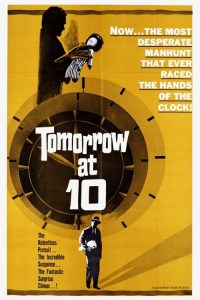






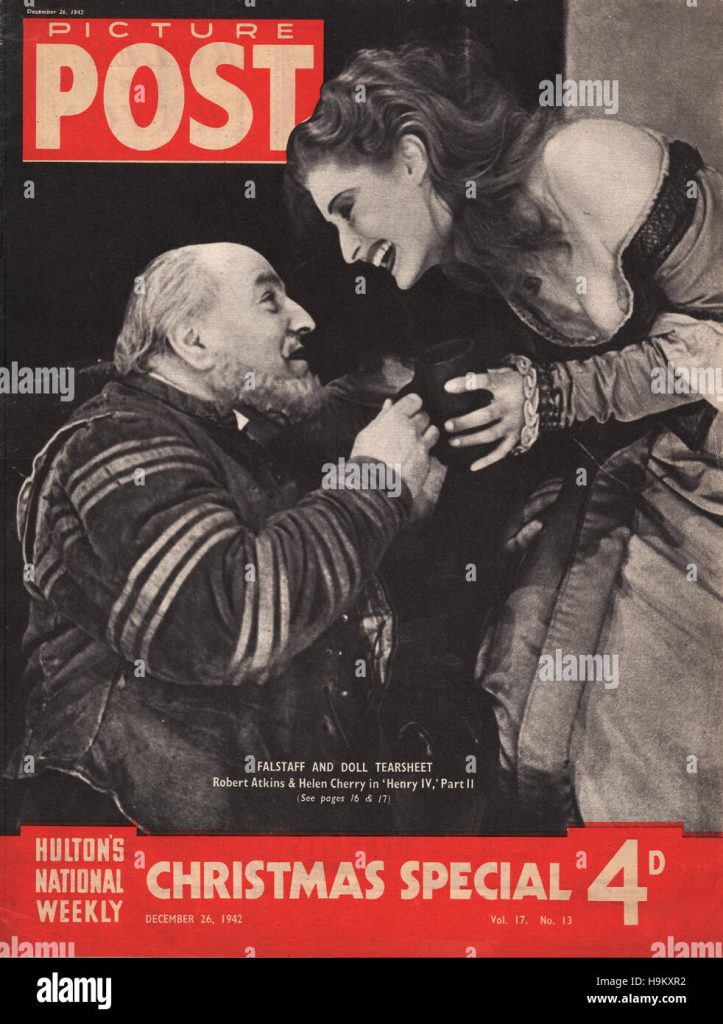



TCM overview:
A combination of beauty, brains and talent, English actress Rosamund Pike began her ascent to stardom even as she was in the process of earning a degree from Oxford College. Pike vaulted directly from university and a handful of minor roles on U.K. television to a breakout role opposite Pierce Brosnan’s James Bond in the 007 action-adventure “Die Another Day” (2002). Unlike so many “Bond girls” before her who quickly sank into obscurity, Pike continued to hone her craft and garner attention in such period pieces as “The Libertine” (2004) and “Pride and Prejudice” (2005), starring alongside established talents like Johnny Depp and Keira Knightley. In addition to making a name for herself on the stages of London’s West End, the burgeoning actress received critical acclaim for supporting turns in several independent features, “An Education” (2009) and “Barney’s Version” (2010), among them. Balancing the smaller budget projects with more blockbuster fare, she took on significant roles in the Greek mythology fantasy-adventure “Wrath of the Titans” (2012) and the action-packed Tom Cruise thriller “Jack Reacher” (2012). Determined to establish herself as more than a pretty face, Pike shrewdly bolstered her artistic reputation even as she continued to build a solid profile in mainstream entertainments.

His film credits include: Juan Antonio Bardem‘s Behind the Shutters, The Ups and Downs of a Handyman, Prey, Spaced Out,[2] Hawk the Slayer, Rendezvous in Paris and Enemy Mine.
Television appearances include: Dixon of Dock Green, Z-Cars, UFO, Space: 1999, Survivors, The Professionals and Reilly, Ace of Spies. The Prince & the Pauper 1976 (TV Series).
Anyone who knows me are aware that I am a bit of a movie buff. Over the past few years I have been collecting signed photographs of my favourite actors. Since I like movies so much there are many actors whose work I like.